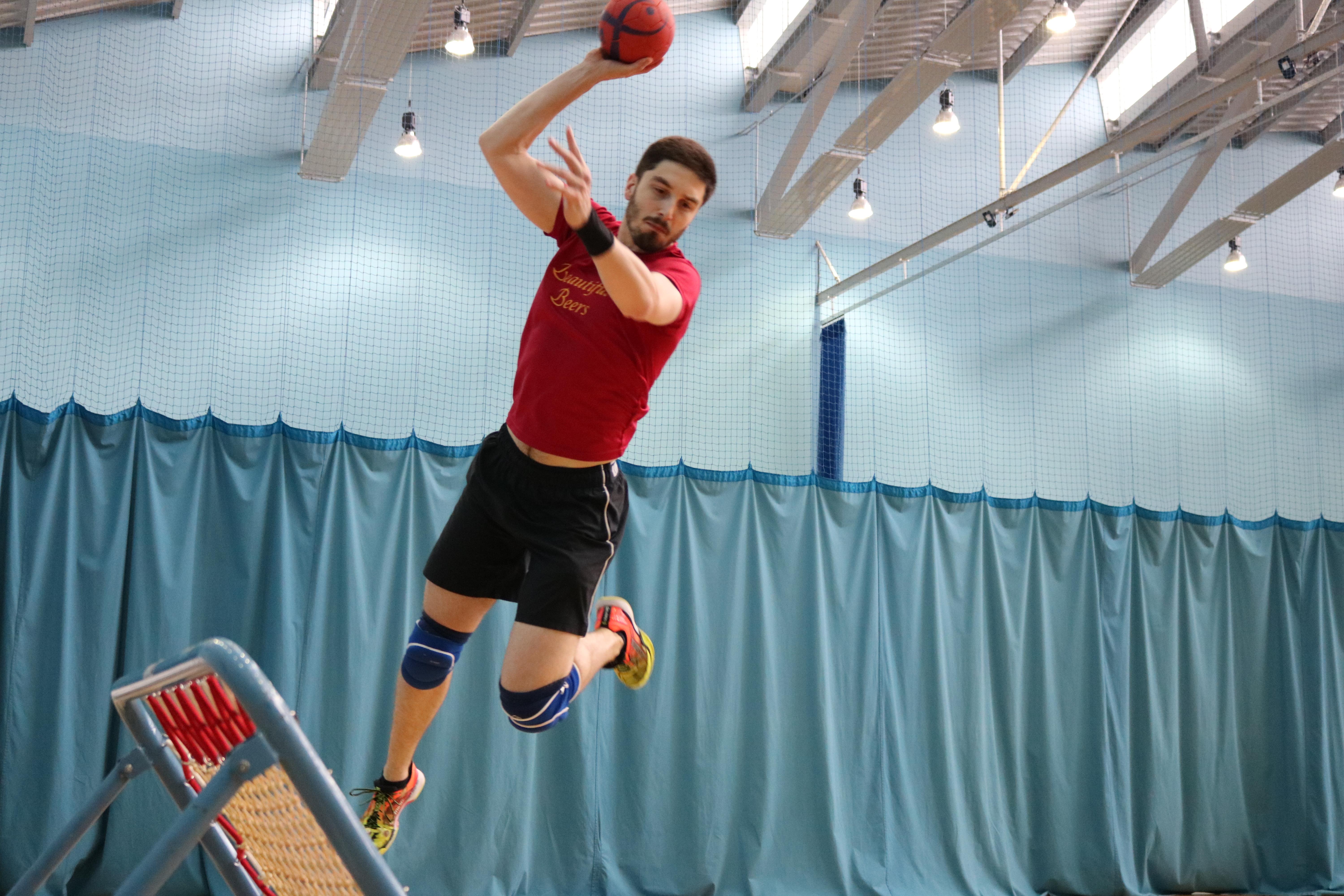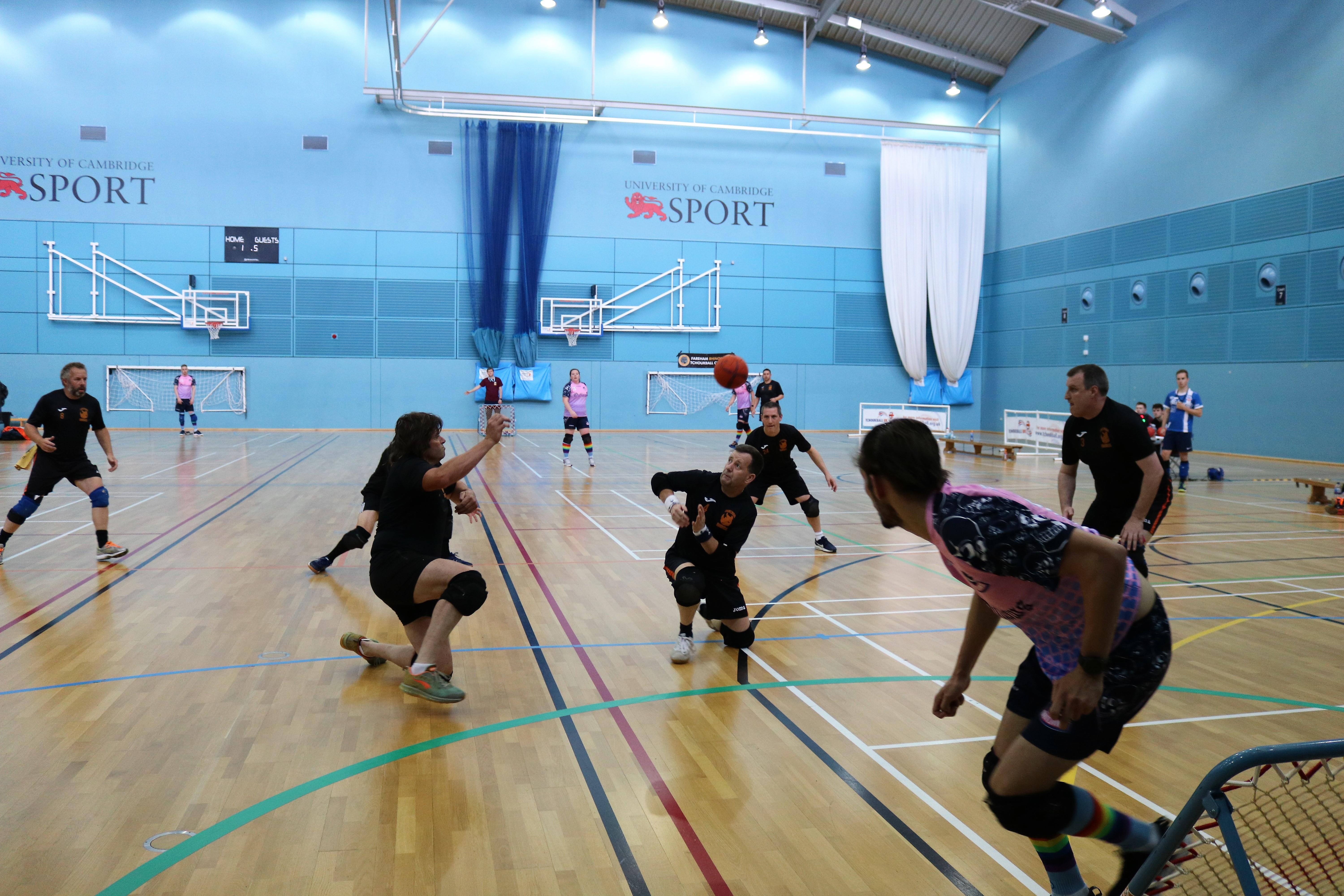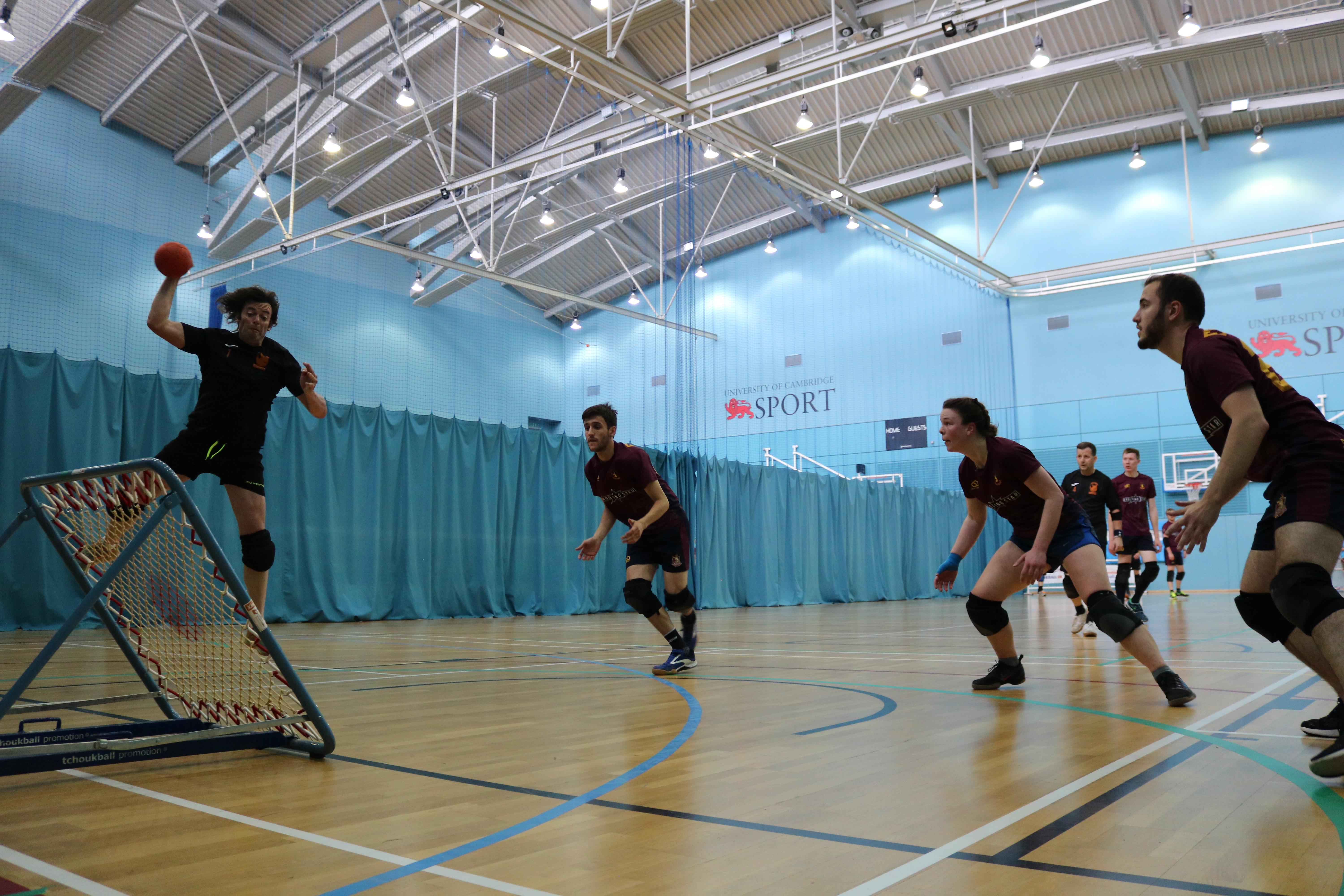To conclude our series, we take a look at the thrills and spills of tchoukball, the fastest handball sport in the world today.
Combining athleticism, concentration and unity, tchoukball is a team sport for the masses and we spoke to Tchoukball UK’s Performance Director, Janine Norman, to find out more.
What is Tchoukball?
Tchoukball is a fast-paced, handball-esque, team sport that can be played indoors or on the beach.
The unique features of tchoukball are that it is non-contact, can be played in mixed-gender teams and you attack and defend at both ends!
Invented to prevent injuries, tchoukball is an inclusive game and easy to pick up with the main skills of throwing, catching and shooting.
Players wear protective knee pads which at the top level sees exciting slides, dives and catches from the defending team to prevent the ball from hitting the floor.

What are the basic rules?
A team can have up to twelve players with seven players on the court at any time. You will normally see a split of three and four players around each ‘D’, with four dedicated shooters (one left and one right each end), plus three defenders (one and two each end).
Each game consists of 3 x 15min periods and there are unlimited substitutions.
Tchoukball is played by a “rule of three”: You have up to 3 seconds, 3 steps and 3 passes with the ball before it has to be shot at a frame.
To take a shot you have to stand/jump from outside the ‘D’. When a ball is shot at the frame, the defending team will be on its knees around the ‘D’ trying to catch the rebounding ball. To score a point the ball must touch the floor outside the ‘D’ and inside the court.
The shooter's aim is to place the ball away from the defenders and the defender’s aim is to place themselves in the way of the ball. If a shot misses the frame, lands inside the ‘D’ or outside the court a point is given to the opposition.
How can someone get involved?
There are a number of ways you can get involved in tchoukball, playing, coaching, officiating and volunteering.
Playing:
Most people’s first experience of tchoukball will happen at school or university. There are over 15,000 young people playing tchoukball across schools in the UK and we offer free membership and guidance to schools remotely.
Our clubs are very friendly and always keen to welcome new players. Most clubs have a mix of elite and international players and people totally new to tchoukball.
If there isn’t a club nearby and you’re interested in starting tchoukball with friends or family, Tchoukball UK can help you through the process.
Coaching & Refereeing:
Not ready to take to the court, why not become a coach or referee? Head to our website to check out what's on offer or contact us to arrange a course in your area.
Volunteering:
From photography to social media to event management, we have a wide selection of volunteering opportunities to suit everyone. We're exctied to be hosting the European Tchoukball Championships in Leeds next year - there's never been a better time to volunteer with us!

What can people gain from playing your sport?
One of the best things about tchoukball is the community. We’re an open, inclusive family - clubs across the world are in constant communication and events welcome players regardless of ability.
It is quite possible to begin playing and within a few weeks, attend a tournament in the Swiss mountains or on the beaches of Italy.
If you’re serious about playing at an elite level, tchoukball has many transferable skills. We have a large number of Team UK players who have played or continue to play in the following sports; basketball, netball, handball, football, cricket, athletics and hockey.
With no tackling or physical dominance of other players possible, tchoukball is also a great alternative for people who can be nervous about facing stronger players.

What does the future of Tchoukball look like?
As with most sports, our main goal is to see more people playing Tchoukball across the UK.
We have a strong presence in a number of places across England, but we would like to grow this to Scotland, Wales and Northern Ireland. In turn, this would grow our National League competitions to include more teams.
We hope to achieve this by growing our participation at a junior level. We have some fantastic youth delivery at our Bury St Edmunds and Fareham clubs, which we are looking to replicate elsewhere. We are always open to hearing from teachers who would welcome Tchoukball delivery in their school or who we can support with coaching and curriculum resources.
Universities are also an area of particular interest, Tchoukball is the perfect sport for students looking to try something less traditional, be this on a regular or ad hoc basis.. We currently have clubs with links to Leeds Beckett, Southampton & Portsmouth University, all of which provide a constant stream of new participants to the sport.










